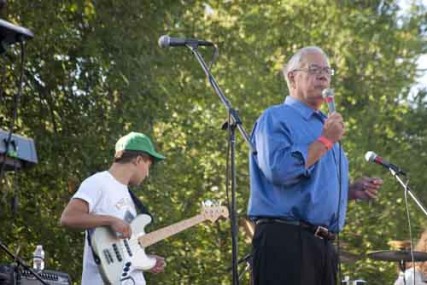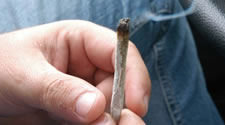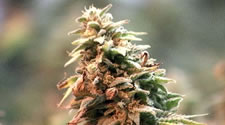 Speaking before a crowd on the Boston Common at the 23rd Boston Freedom Rally Sept. 15, US Rep. Barney Frank said using cannabis is an individual choice that should not be criminalized. Frank said he has "been fighting for some time for a measure that will reduce crime very substantially," and will actually "make money for the government." Frank told the crowd: "We can reduce the crime rate by stop treating people as criminals because they have made the decision to smoke marijuana personally."
Speaking before a crowd on the Boston Common at the 23rd Boston Freedom Rally Sept. 15, US Rep. Barney Frank said using cannabis is an individual choice that should not be criminalized. Frank said he has "been fighting for some time for a measure that will reduce crime very substantially," and will actually "make money for the government." Frank told the crowd: "We can reduce the crime rate by stop treating people as criminals because they have made the decision to smoke marijuana personally."

 The 21st annual Extravaganja festival was held April 28 on the town common of Amherst, Mass. Sponsored by the
The 21st annual Extravaganja festival was held April 28 on the town common of Amherst, Mass. Sponsored by the  With Massachusetts lawmakers deadlocked over medical marijuana legislation, the question seems more likely to go before the commonwealth's voters in November. Two bills before the Public Health Committee on legalizing medical marijuana (S 1161 and H 625) have been sent to "study"—a move that almost always ends the chances of a bill passing. A ballot measure on the issue will only be averted if backers fail to collect 11,485 certified signatures by July 3 or if they drop their effort in deference to a plan in the legislature to pass an alternative proposal—neither of which now seem probable. (
With Massachusetts lawmakers deadlocked over medical marijuana legislation, the question seems more likely to go before the commonwealth's voters in November. Two bills before the Public Health Committee on legalizing medical marijuana (S 1161 and H 625) have been sent to "study"—a move that almost always ends the chances of a bill passing. A ballot measure on the issue will only be averted if backers fail to collect 11,485 certified signatures by July 3 or if they drop their effort in deference to a plan in the legislature to pass an alternative proposal—neither of which now seem probable. ( A small Massachusetts-based company called
A small Massachusetts-based company called  The Supreme Court heard arguments Feb. 28 in DePierre v. United States, on whether the term "cocaine base" in the Federal Sentencing Guidelines is limited to "crack" or includes all forms of cocaine chemically classified as a base. The US First Circuit Court of Appeals in Boston ruled that "cocaine base" refers to "all forms of cocaine base, including, but not limited to crack cocaine." Counsel for the petitioner argue that Congress did not intend "cocaine base" to refer to substances used in the crack-production process.
The Supreme Court heard arguments Feb. 28 in DePierre v. United States, on whether the term "cocaine base" in the Federal Sentencing Guidelines is limited to "crack" or includes all forms of cocaine chemically classified as a base. The US First Circuit Court of Appeals in Boston ruled that "cocaine base" refers to "all forms of cocaine base, including, but not limited to crack cocaine." Counsel for the petitioner argue that Congress did not intend "cocaine base" to refer to substances used in the crack-production process. Voters in more than a dozen Massachusetts legislative districts backed dramatic expansions to legal access to cannabis in the Nov. 2 elections, and advocates plan to use the results to press lawmakers. Nine of 18 advisory questions placed on the ballot queried voters on medical marijuana, while another nine backed legalizing cannabis outright, allowing the state to regulate and tax it.
Voters in more than a dozen Massachusetts legislative districts backed dramatic expansions to legal access to cannabis in the Nov. 2 elections, and advocates plan to use the results to press lawmakers. Nine of 18 advisory questions placed on the ballot queried voters on medical marijuana, while another nine backed legalizing cannabis outright, allowing the state to regulate and tax it.





Recent comments
3 weeks 21 hours ago
3 weeks 1 day ago
6 weeks 1 day ago
7 weeks 1 day ago
11 weeks 1 day ago
14 weeks 6 days ago
19 weeks 2 hours ago
19 weeks 5 days ago
29 weeks 5 days ago
33 weeks 5 days ago